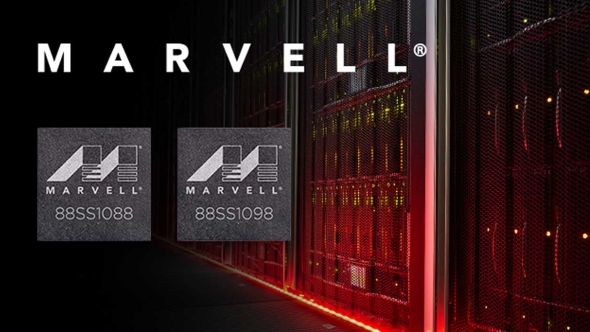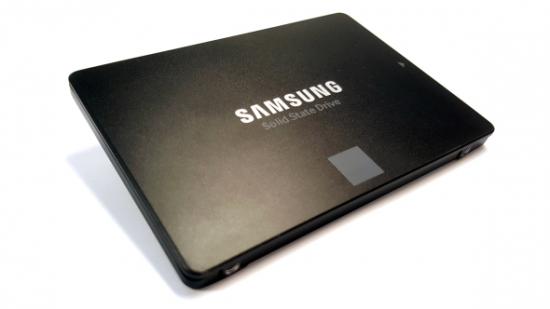Samsung and Marvell have both unveiled new SSD memory controllers that are going to deliver 8TB drives to the next generation of solid state storage.
Check out our pick of the best SSDs for gaming right now.
In the super-serious world of data centre storage we’ve seen how Nimbus Data have managed to create a world record 100TB SSD, but that has to use several different memory controllers to achieve its headline grabbing capacity. The new controllers from Samsung and Marvell, however, only need a single chip to be able to offer SSD capacities up to a heady 8TB and that makes them a more realistic option to squeeze into your next gaming SSD.
And because they’re not going to cost tens of thousands of dollars either…
The new 2.5-inch 8TB Samsung PM883 will be the first SATA SSD to bring with it support for LPDDR4 memory chips attached to it. Though, as this professional drive is stuck on the old 6Gbps SATA interface, you’re only going to be able to get read/write speeds of 520MB/s and 550MB/s respectively.
The highest capacity SATA SSD you can jam into your gaming PC right now is the 4TB version of the Samsung 860 EVO, but with the new generation of controllers we expect Samsung to start offering 8TB in their new SSDs.

Marvell, on the other hand, have been focusing their efforts on creating new PCIe-based controllers for NVMe SSDs. And, unlike the Samsung controller, we’ll see this next-gen slice of silicon being used on multiple manufacturers’ drives in the future.
Bu like the Samsung controller, the eight-channel Marvell 88SS1098 and 16-channel 88SS1088 chips are able to take advantage of LPDDR4 with potential cache sizes of up to 8GB, and can also operate with both the current-gen 3D TLC NAND as well as the new style of QLC NAND flash memory.
Again they will be able to offer a maximum capacity of 8TB thanks to the new controllers, but as they’re going to operate on the speedy PCIe x4 interface they can deliver read/write speeds of up to 3,600MB/s.
